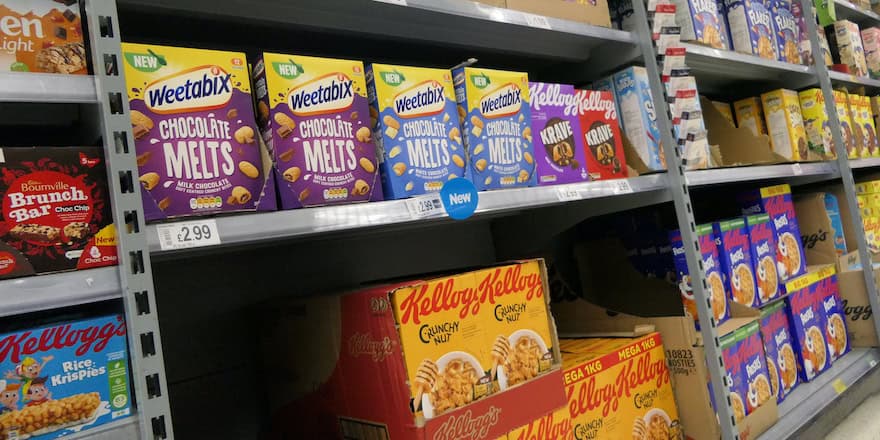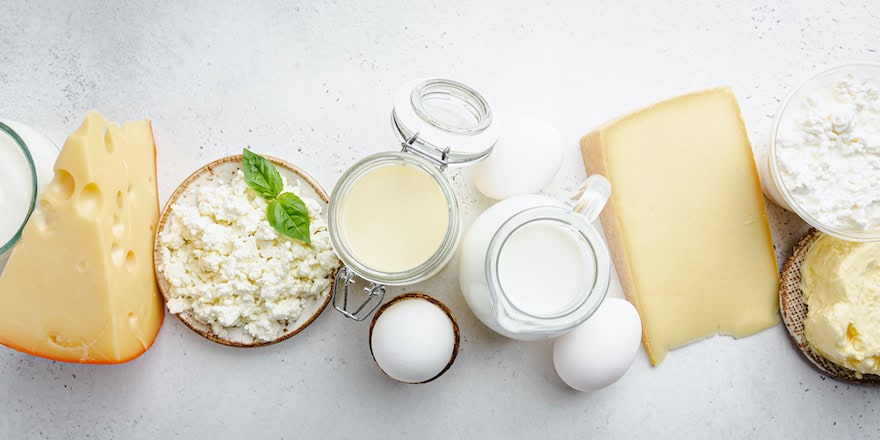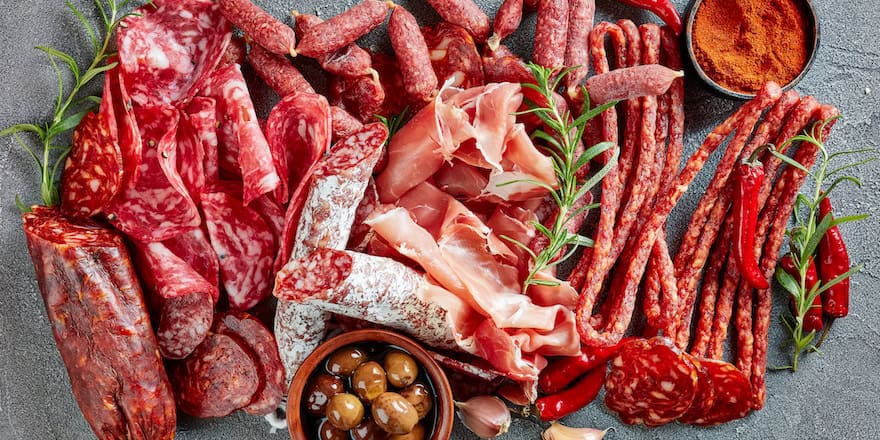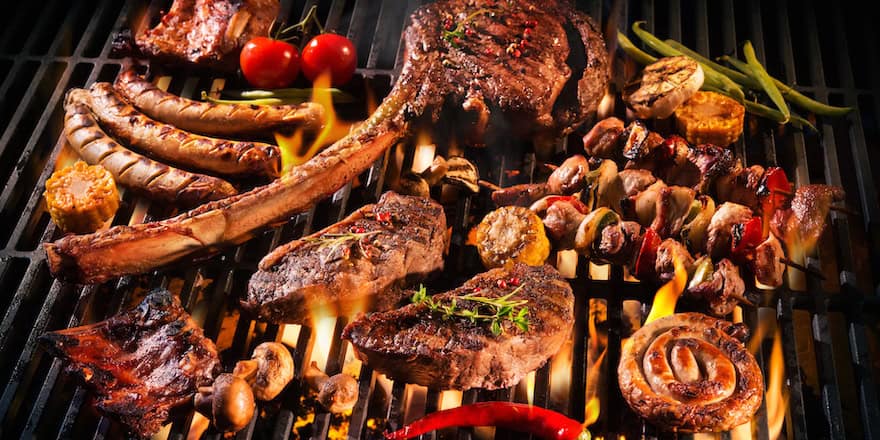Located below the bladder, the prostate is part of the male urogenital system. Its role is essential as it stores seminal fluid.
After age 50, three prostate issues frequently occur: benign prostatic hyperplasia, inflammation, and prostate cancer.
This study highlighted the importance of a healthy diet in preventing complications related to prostate aging.
Various foods are recommended for their protective effects, composition, and antioxidants. For example, tomatoes, nuts, carrots, turmeric, and green tea.
Conversely, you can also protect your prostate from inflammation by limiting certain foods. This way, you can better prevent its aging and potential urogenital complications.
1. Refined grains and ready-to-eat industrial dishes

Western diets and their processed foods have many contraindications for the prostate.
According to this meta-analysis conducted in Italy, refined foods would accelerate prostate aging and notably increase cancer risks by an average of 64%.
What is suspected to be responsible for these detrimental effects on prostate health: the high glycemic index, causing insulin spikes and an inflammatory state.
To take care of your prostate, it is preferable to favor a diet rich in fiber. I recommend whole or semi-whole grains, legumes, vegetables, and fruits.
2. Milk and dairy products

In recent years, several studies have established a link between milk consumption and increased prostate cancer risks.
The main reasons cited and supposed are: the high consumption of calcium, the presence of hormones in milk such as estrogens… Also, the growth factor nicknamed IGF, resembling insulin.
Indeed, calcium seems to promote cancer cell growth by inhibiting the anti-proliferative effect of vitamin D.
Regarding hormones and the milk growth factor, they are implicated in numerous cancers. The effects on the prostate from dairy consumption remain variable and deserve further exploration to better understand these mechanisms.
To avoid prostate dysfunction, prefer to consume dairy products in moderation. I recommend milk, yogurt, and cheese 1 to 2 times a day maximum, even for young boys.
3. Meats and processed meats

Since 2015, the World Health Organization (WHO) has classified processed meats, such as ham, sausages, and deli meats, as Group 1 carcinogens.
As with milk, the growth factor (IGF-1) is thought to be present in meats more generally (chicken, red meat, and others).
A meta-analysis studying 172 countries observed and warned of a possible link between total meat consumption and prostate issues.
As a precaution, limit processed meat products. Opt for lean, organic, or labeled meats without additives, consuming them 3 to 4 times a week.
To maintain optimal prostate function, you can vary your meals by replacing meat with plant-based proteins.
📚 Read also | What are the best plant-based protein powders?
4. Grilled, fried, and smoked foods

Cooking methods influence cellular aging and can accelerate certain physiological manifestations. For your prostate and health, gentle cooking methods are much better.
During high-temperature cooking like barbecuing, frying, or smoking foods, potentially harmful substances form. PAHs (polycyclic aromatic hydrocarbons) like benzopyrene, AGEs (advanced glycation end-products), and AHAs (aromatic heterocyclic amines).
If consumed in large quantities and regularly, they are carcinogenic, increasing inflammation and oxidative stress.
For example, this American study demonstrated an increased risk of advanced-stage prostate cancer, by an average of 60%, for heavy consumers of grilled or overcooked meats.
5. Sugar and Sweet Products

Sodas, cakes, pastries, added sugars, and excessive candies are responsible for various chronic diseases, including overweight, diabetes, and inflammation.
However, obesity and hyperinsulinemia could promote benign prostatic hyperplasia (BPH), according to the French Urology Congress.
For healthy weight and balanced blood sugar reducing the risks of diabetes, the quantity and quality of sugary products consumed daily play a crucial role.
A low carb diet, low in carbohydrates and high in protein, could even reduce the risks of prostate cancer by half.
Keep occasional sweet pleasures by opting for fresh fruits and homemade recipes. If needed, you can get support from a dietitian-nutritionist to balance your diet.
6. Alcoholic Beverages

Both sweet and composed of ethanol, alcohol should be consumed in moderation for a healthy prostate.
Researchers compared data from over 10,000 men participating in the prostate cancer prevention study. Those who consumed large amounts of alcoholic beverages were twice as likely to be affected by the disease.
According to the PNNS recommendations, two glasses per day, and not every day, is a benchmark for evaluating your habits. Beyond 20 glasses of alcohol per week, consumption is considered risky.
My Advice for a Healthy Prostate
All these discoveries about the prostate are very encouraging for better orienting dietary habits and overall lifestyle.
Limiting sedentary behavior and reducing stress is just as important as avoiding the aforementioned foods.
Finally, seek advice from your doctor at the first signs of urinary disorders, infections, or in case of doubts.
Sources and Scientific Studies
Karine Trudeau, Marie-Claude Rousseau, Christine Barul, Ilona Csizmadi, Marie-Élise Parent – Dietary Patterns Are Associated with Risk of Prostate Cancer in a Population-Based Case-Control Study in Montreal, Canada, 2020
Roberto Fabiani, Liliana Minelli, Gaia Bertarelli and Silvia Bacci – A Western Dietary Pattern Increases Prostate Cancer Risk: A Systematic Review and Meta-Analysis, 2016
Halcyon G. Skinner, Gary G. Schwartz – A Prospective Study of Total and Ionized Serum Calcium and Fatal Prostate Cancer, 2009
Esther M. John, Mariana C. Stern, Rashmi Sinha and Jocelyn Koo – Meat consumption, Cooking Practices, Meat Mutagens and Risk of Prostate Cancer, 2012
Wenpeng You, Maciej Henneberg – Prostate Cancer Incidence is Correlated to Total Meat Intake– a Cross-National Ecologic Analysis of 172 Countries, 2013
Erika Ax, Hans Garmo, Birgitta Grundmark, Anna Bill-Axelson, Lars Holmberg, Wulf Becker, Björn Zethelius, Tommy Cederholm, Per Sjögren – Dietary patterns and prostate cancer risk: report from the population based ULSAM cohort study of Swedish men, 2014
Zhihong Gong, Dr. Alan R. Kristal, Jeannette M. Schenk, Dr. Catherine M. Tangen, Phyllis J. Goodman and Ian M. Thompson – Alcohol Consumption, Finasteride and Prostate Cancer Risk: Results from the Prostate Cancer Prevention Trial, 2009



